Was Bertrand Russell Right About Thomas Aquinas?
by Joe Tulloch
Filed under Philosophy
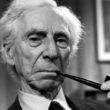
Bertrand Russell was one of the most prominent philosophers of the 20th century, and an outspoken skeptic. His bestselling book A History of Western Philosophy (which was cited as one of the reasons for his 1950 Nobel Prize in Literature) contains a short chapter in which he examines St Thomas Aquinas’ life and work, concluding with the following, damning remark: There is little of the true philosophic spirit in Aquinas. He does not, like the Platonic Socrates, set out to follow wherever... Read More
The Most Famous Debate on the Existence of God
by Brandon Vogt
Filed under God, Morality
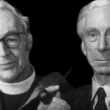
On January 28, 1948, the BBC brought together two of the century's brightest minds for a radio debate about the existence of God. To be sure, the debaters were not just lightweight showboats, blowing off steam. The two men represented the cream of the intellectual crop. Bertrand Russell was a renowned British philosopher, mathematician, historian, and perhaps the world's leading atheist at the time. He authored many skeptical essays and books, including the collection still popular today, Why... Read More
Is the Passage of Time Real or Just an Illusion?
by Brandon Vogt
Filed under Christianity and Science, Cosmology

One of the main targets of Sean Carroll's new book, The Big Picture: On the Origins of Life, Meaning, and the Universe Itself (Dutton, 2016), is causality. Like many naturalists, he sees where the causal chain leads—a series of contingent causes demands a necessary First Cause. So if you want to avoid a First Cause, you must get rid of causality. As discussed in an earlier post, Carroll's first attempt appealed to the conservation of momentum. It wasn't clear how that principle... Read More
5 Reasons Why the Universe Can’t Be Merely a Brute Fact
by Karlo Broussard
Filed under Cosmology
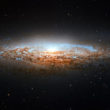
Can the universe be a mere brute fact? Can we say, “The universe just exists and that’s that—it has no explanation at all”? Sean Carroll, a theoretical physicist at the California Institute of Technology, thinks so. In a recent interview at Salon.com, Carroll says, “There’s certainly no reason to think that there was something that ‘caused’ it; the universe can just be.” Carroll is in good company with such an assertion. Bertrand Russell, the late British atheistic philosopher,... Read More
Is a Proof Bad If It Fails to Convince Everyone?
by Dr. Michael Augros
Filed under The Existence of God

Some atheists will object to arguments for God by observing, "If a particular proof for God is so strong, why doesn't it convince everyone?" This objection is perhaps the most prevalent, and the cheapest one to make, yet a complete answer to it involves several components and is also interesting in its own right. This objector presents the theist with a dilemma: either I must pretend to be a supergenius like none the world has ever seen, presenting new and amazing arguments for God’s... Read More
Can We Make Sense of the World?
by Dr. Edward Feser
Filed under Cosmology

Is reality intelligible? Can we make sense of it? Or is the world at bottom an unintelligible “brute fact” with no explanation? We can tighten up these questions by distinguishing several senses in which the world might be said to be (or not to be) intelligible. To make these distinctions is to see that the questions are not susceptible of a simple Yes or No answer. There are in fact a number of positions one could take on the question of the world’s intelligibility –... Read More
If Everything Requires a Cause, What Caused God?
by Dr. Edward Feser
Filed under The Existence of God
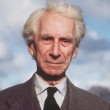
W. Norris Clarke’s article, “A Curious Blind Spot in the Anglo-American Tradition of Antitheistic Argument,” first appeared in The Monist in 1970. It was reprinted in his anthology titled The Creative Retrieval of St. Thomas Aquinas: Essays in Thomistic Philosophy, New and Old, which was published posthumously in 2009. I recently read the essay, and I did so with embarrassment and gratification. Embarrassment because I found that something I’ve been harping on for a few... Read More
Varieties of (Non)Belief
by Paul Rimmer
Filed under Belief

NOTE: Today we share a guest post from one of our non-theist commenters, Paul Rimmer. Does the world need another article on how to define atheism? Does Strange Notions? These questions had to open the article, in part because there have already been several different Strange Notions articles on how to define atheists, including the most recent article about self-identified atheists who believe in God. Yet here I am, talking about how to define the terms “atheist”, “theist”,... Read More
The Road from Atheism: Dr. Edward Feser’s Conversion (Part 2 of 3)
by Dr. Edward Feser
Filed under Atheism, Conversion
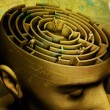
NOTE: On Monday we shared Part 1 of Dr. Edward Feser's conversion story from atheism to theism. Today we're posting Part 2 and on Monday we'll post Part 3.We'd also like to note that Dr. Feser's contributions at Strange Notions were originally posted on his own blog, and therefore lose some of their context when reprinted here. Dr. Feser explains why that matters. Not that that led me to give up naturalism, at least not initially. A more nuanced, skeptical naturalism was... Read More
The Road from Atheism: Dr. Edward Feser’s Conversion (Part 1 of 3)
by Dr. Edward Feser
Filed under Atheism

NOTE: Today we share the first part of Dr. Edward Feser's conversion story from atheism to theism. We'll post Part 2 this Friday and Part 3 on Monday. We'd also like to note that Dr. Feser's contributions at Strange Notions were originally posted on his own blog, and therefore lose some of their context when reprinted here. Dr. Feser explains why that matters. As many friends and readers know, I was an atheist for about a decade—roughly the 1990s, give or... Read More






